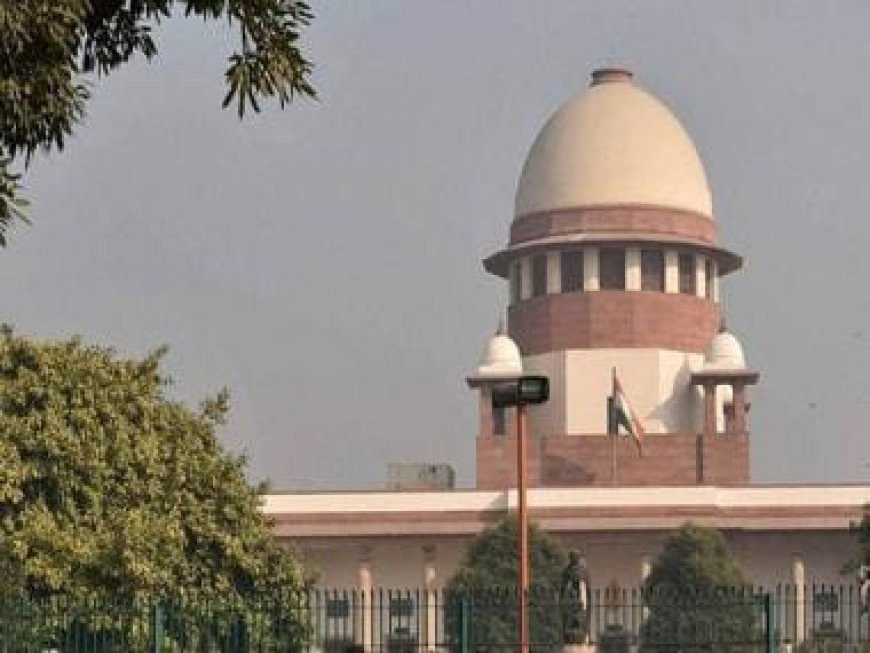SC strikes down electoral bonds scheme, calls it unconstitutional, violative of RTI, free speech
SC strikes down electoral bonds scheme, calls it unconstitutional, violative of RTI, free speech

The Supreme Court Thursday pronounced its verdict on petitions challenging the validity of the electoral bonds scheme.
Chief Justice of India (CJI) DY Chandrachud said anonymous electoral bonds are violative of the right to information and Article 19(1)(a).
The matter was heard by a five-judge bench comprising the CJI, Justices Sanjiv Khanna, BR Gavai, JB Pardiwala and Manoj Misra.
CJI Chandrachud said the five-judge bench arrived at a unanimous decision. “We have arrived at a unanimous decision. There are two opinions, one by myself and another by Justice Sanjiv Khanna. Both arrive at same conclusion. There is a slight variance in the reasoning.”
Electoral bonds scheme to be struck down
The apex court ruled that the electoral bonds scheme has to be struck down as unconstitutional.
The CJI noted that not all contributions made to political parties are intended to alter public policy.
“Students, daily wagers, etc also contribute. To not grant umbrella of privacy to political contributions only because some contributions are made for other purposes is not impermissible,” the court said.
SC also highlighted that the electoral bonds scheme cannot be justified by saying that it will help curb the flow of black money.
It also said while it is important to protect the privacy of donors, “transparency in political funding cannot be achieved by granting absolute exemptions.”
Banks to stop issuing electoral bonds
The top court ordered the issuing bank, that is the State Bank of India, to stop the issue of electoral bonds henceforth.
“The State Bank of India shall furnish the details of donations through electoral bonds and the details of the political parties which received the contributions,” the court said.
In this regard, the court ordered the State Bank of India to provide details of the political parties that received electoral bonds to the Election Commission (ECI) of India by March 6.
Meanwhile, by March 13, the ECI has been directed to publish all the details on its official website following which the the amount of the bonds that have not been encashed by political parties yet will be refunded to the purchaser’s account.
Companies’ contributions purely business transactions
The Supreme Court said amendment to the Companies Act (allowing blanket corporate political funding) is unconstitutional.
Explaining the verdict, the CJI said, “Contributions by companies are purely business transactions.”
Compared to contributions by individuals, donations by companies will have a graver influence on the political process.
“Amendment to Section 182 Companies Act is manifestly arbitrary for treating companies and individuals alike,” the CJI said.
What is electoral bonds scheme?
Introduced by the government on 2 January 2018, the electoral bonds scheme enables donors to anonymously send funds to a political party after buying bearer bonds from SBI.
An electoral bond is an instrument like a promissory note or bearer bond which any individual, company, firm or association of persons can purchase provided the person or body is a citizen of India or incorporated or established in India.
These bonds are available in various denominations, ranging from Rs 1,000 to Rs 1 crore, and can be obtained at all branches of the State Bank of India (SBI). These donations are also interest-free.
Electoral bonds, which were introduced through the Finance Act, of 2017 and are issued specifically to contribute funds to political parties in its existing scheme.
The introduction of electoral bonds in turn amended three other statutes – the RBI Act, the Income Tax Act and the Representation of People Act.
The 2017 Finance Act introduced a system by which electoral bonds could be issued by any scheduled bank for electoral funding.
The Act was passed as a money bill and therefore, it did not require the assent of the Rajya Sabha.
Argument in petitions filed against Electoral Bonds Scheme
In their pleas, the petitioners argued that the electoral bonds scheme defeats the citizen’s right to be informed about the sources of funding of political parties which is a fundamental right under Article 19(1)(a) of the Constitution.
Senior advocate Prashant Bhushan, appearing for the petitioners, had last year said the “opaque” and “anonymous instrument” promotes corruption.
Ahead of the hearing by the Supreme Court in November last year, Attorney General R Venkataramani argued that Article 19(1)(a) does not guarantee citizens an absolute right to information regarding the source of funds used for political party funding through electoral bonds.
Venkataramani further said the electoral bond scheme promotes transparency and clean money in elections. However, he maintained that there are limitations to the RTI, and it cannot be an unrestricted right to know “anything and everything.”
“The scheme in question extends the benefit of confidentiality to the contributor. It ensures and promotes clean money being contributed. It ensures abiding by tax obligations. Thus, it does not fall foul of any existing right,” he had said.
What's Your Reaction?



























































